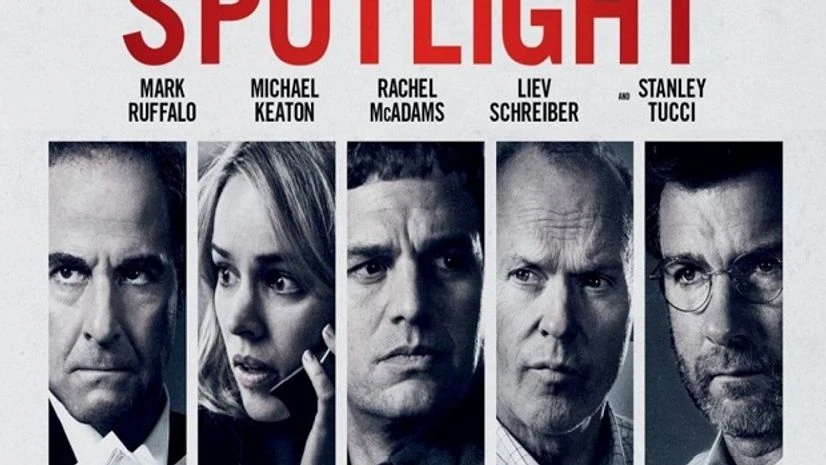Less than two months ago, Boston Globe reporters and editors were delivering thousands of copies of their own newspaper, mollifying subscribers who were upset by sporadic delivery service.
But on Monday their jobs seemed so much more glamourous, as the newsroom celebrated the Academy Award triumph of Spotlight, the film based on the paper's Pulitzer-Prize winning series exposing the Catholic Church's cover-up of priest abuse.
"Everybody's walking a little bit taller" in the newsroom, Brian McGrory, the paper's editor, said in a phone interview, describing the mood as "universally great.'' "It's a much-welcomed boost."
Also Read
At the same, he added, "the important part of this for us is the huge amount of positive publicity shed on the kind of pick-and-shovel investigative work that The Globe and everybody else in news media needs to be doing."
The buoyant mood over the best picture award for Spotlight Sunday night extended beyond the paper's Boston offices, said Walter Robinson, the editor known as Robby and played by Michael Keaton in the film. Robinson said he received messages from colleagues in the business saying their newsrooms "erupted in applause" over the award.
Twitter also lit up with rallying cries in favour of journalism writ large, including exhortations to subscribe "to the print edition of your local newspaper," "buy an app" or donate to an investigative reporting non-profit organisation.
Robinson, who led The Globe's investigative team, said in a phone interview that the award was a "needed shot in the arm for journalism," and a reminder to the public on "good reporting and the difference it can make in people's lives - particularly the lives of people who have no one else to speak for them but us."
The boost comes as financial pressures in the digital age have forced many newspapers to reduce their staffs and cut back on resources, and when public attacks on journalism are an increasingly common ingredient of presidential campaign stump speeches. The Globe has not been exempt from these pressures, with cuts in its foreign bureaus and all national bureaus except Washington, said Sacha Pfeiffer, a member of the team who is played by Rachel McAdams.
In the face of these pressures, maintaining subscriber loyalty takes on even more importance. So when The Globe changed delivery services early this year, leading to problems in getting papers to people's doors, staff members quickly volunteered to add delivery routes to their normal duties.
"It's such a rough time for the print industry that it's the best possible time for a movie that celebrates journalism," Pfeiffer said, also speaking by phone.
Still, staff members at The Globe and other media outlets wondered if the celebration would translate to action, meaning more paid print and digital subscribers and, in the case of non-profit organisations, more donations.
"In the end it's a business discussion," said William Gray, media relations specialist at the Center for Public Integrity, a Washington-based non-profit organisation focused on investigative reporting.
Gray noted that the centre's chief executive, Peter Bale, met recently with one of the screenwriters of Spotlight, Josh Singer, to talk about providing financial support to his organisation's work. They also discussed telling more stories from the world of journalism. ProPublica, a New York-based non-profit organisation, sent out a fund-raising email Monday with the subject line, "A day to celebrate investigative journalism."
Pfeiffer said she hoped the film would help encourage a new wave of aspiring journalists to join the ranks. She said she had been speaking for several months at journalism schools and other locations with her Spotlight colleagues about the team's work. Young people all over the country have said that because of the film, they want to become journalists, she said. "But I wonder, will jobs be there?"
McGrory called Hollywood success "one of the most visible platforms you can get in this country," but questioned whether journalism would realise any financial benefit from it.
"We don't know how to monetize this award to fund more investigative reporting, or whether it can be," he said.
"But we already know, even before the Oscars, that it has created all sorts of good will among readers, a greater understanding of what we do, and a renewed appreciation for investigative reporting. The entire industry benefits from that."
As of Monday afternoon, the most viewed story on The Globe's website - "by a long shot," said McGrory - was the Spotlight team's first story on priest abuse, first published on January 6, 2002.
"Our reporting is getting a new life because of this movie," Pfeiffer noted. "It's the power of Hollywood - in a good way."
Not everything about Hollywood appealed to The Globe team, however. Though all four members attended the Oscars, they were not necessarily enamoured of the glitter and the attention.
"Now I can get back to what I'm more comfortable with - asking questions instead of answering them," said Robinson.
©2016 The New York Times News Service

)
